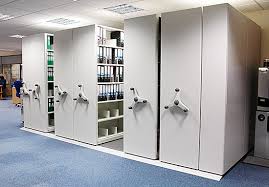In today’s fast-paced business world, the importance of ergonomic office furniture cannot be overstated. With long working hours becoming the norm, ensuring the well-being and comfort of employees has become a top priority for companies. The ANSI/BIFMA X5.11 standard plays a crucial role in defining the requirements for office seating products, aiming to improve comfort, safety, and overall performance. In this comprehensive article, we will delve into the details of the ANSI/BIFMA X5.11 standard and explore its profound impact on the office furniture industry.
What is ANSI/BIFMA X5.11 Standard?
The American National Standards Institute (ANSI) and the Business and Institutional Furniture Manufacturers Association (BIFMA) collaborated to develop the ANSI/BIFMA X5.11 standard. This standard specifically focuses on the performance and safety requirements of office seating products such as task chairs, executive chairs, and conference room chairs.
The primary objective of ANSI/BIFMA X5.11 is to establish guidelines that ensure office chairs provide adequate support and ergonomics to the users. By adhering to this standard, manufacturers can design and produce office seating that promotes comfort, reduces the risk of musculoskeletal issues, and enhances productivity in the workplace.
Importance of ANSI/BIFMA X5.11 Standard
1. Enhancing User Comfort
One of the key aspects of the ANSI/BIFMA X5.11 standard is to prioritize user comfort. Office chairs that comply with this standard undergo rigorous testing for factors such as seat dimensions, lumbar support, and seat cushioning. The ergonomic design elements incorporated in these chairs contribute to maintaining the natural curvature of the spine, reducing pressure points, and offering optimal support during prolonged sitting hours.
2. Preventing Musculoskeletal Disorders
Sitting for extended periods in poorly designed chairs can lead to various musculoskeletal disorders. ANSI/BIFMA X5.11-compliant chairs address this concern by incorporating adjustable features, such as seat height, armrests, and lumbar support, which allow users to customize their seating positions according to their individual needs. This adaptability helps prevent the development of musculoskeletal issues like lower back pain and neck strain.
3. Improving Productivity
Comfortable and ergonomic office chairs have a direct impact on employee productivity. When employees are free from discomfort and distractions caused by inadequate seating, they can focus more effectively on their tasks. The ANSI/BIFMA X5.11 standard ensures that office chairs meet the criteria for promoting a healthy and productive work environment.
4. Ensuring Safety
Safety is a paramount concern in any workplace. ANSI/BIFMA X5.11-compliant chairs undergo rigorous testing for stability, structural integrity, and durability. Manufacturers must meet these stringent safety requirements to achieve certification. This ensures that office chairs are safe to use and can withstand the demands of daily use.
How Does ANSI/BIFMA X5.11 Certification Work?
To obtain ANSI/BIFMA X5.11 certification, manufacturers must submit their office seating products to an accredited third-party testing facility. These facilities rigorously evaluate the chairs based on various performance and safety parameters defined by the standard.
The testing process involves subjecting the chairs to simulated real-life conditions, including weight and fatigue tests, to assess their strength and durability. Additionally, the chairs are assessed for their structural integrity, stability, and functionality.
Once a product successfully meets all the requirements of ANSI/BIFMA X5.11, the manufacturer is granted certification, which signifies that the office chairs comply with the highest industry standards for ergonomic design and safety.
The Impact of ANSI/BIFMA X5.11 on the Office Furniture Industry
The introduction of ANSI/BIFMA X5.11 has significantly transformed the office furniture industry. Manufacturers are now compelled to invest in research, innovation, and product development to meet the stringent requirements of the standard. This shift has led to several notable changes:
1. Focus on Ergonomic Design
The standard’s emphasis on user comfort and well-being has prompted manufacturers to prioritize ergonomic design in their product development. As a result, we have witnessed the emergence of office chairs with adjustable features, advanced lumbar support systems, and improved cushioning to cater to diverse user preferences.
2. Introduction of Innovative Materials
Manufacturers have explored new materials and technologies to create chairs that meet the high standards of ANSI/BIFMA X5.11. This has led to the incorporation of advanced materials like mesh, memory foam, and high-performance fabrics in office seating products, enhancing both comfort and durability.
3. Customizable Seating Solutions
The flexibility required to meet the standard’s criteria has led to the introduction of customizable seating solutions. Companies now offer a wide range of options, allowing users to tailor their chairs to suit their individual needs and preferences, contributing to a more personalized user experience.
4. Market Competition and Consumer Awareness
The ANSI/BIFMA X5.11 standard has increased consumer awareness regarding the importance of ergonomic office chairs. As consumers become more informed about the benefits of certified chairs, the demand for such products has grown. Consequently, manufacturers have engaged in healthy market competition, striving to create innovative, ANSI/BIFMA-compliant products to attract consumers.
Conclusion
In conclusion, the ANSI/BIFMA X5.11 standard has revolutionized the office furniture industry by prioritizing user comfort, safety, and ergonomics. It has encouraged manufacturers to focus on developing high-quality, customizable seating solutions that enhance employee well-being and productivity.
Companies seeking to furnish their offices with ergonomic chairs can now confidently look for ANSI/BIFMA-certified products as a mark of quality and compliance with the highest industry standards. As the demand for such chairs continues to grow, the office furniture market will undoubtedly witness continuous innovation and advancements in ergonomic design.
To stay ahead in the competitive landscape and create a healthy and productive work environment, investing in ANSI/BIFMA X5.11-certified office chairs is not just a choice but a strategic decision that will lead to a positive impact on both employees and businesses.








